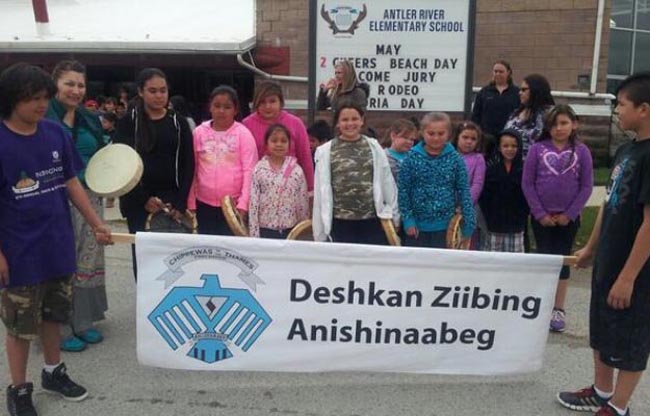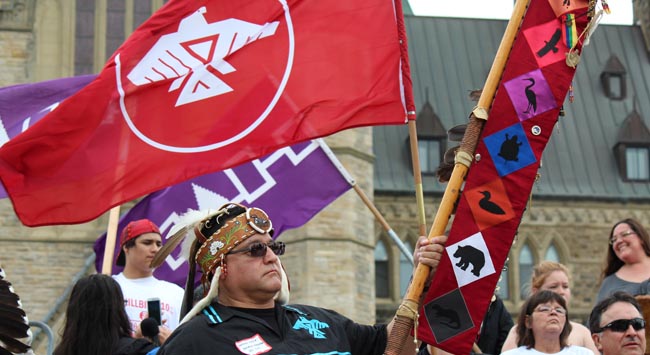Chiefs crafting response to condemned education bill


OTTAWA – The fate of the federal government’s widely-condemned First Nations education legislation will be in the hands of Chiefs gathering in Ottawa May 27.
The special assembly comes in the wake of a massive May 14th demonstration by over 1,000 participants on Parliament Hill to express dissatisfaction with Harper government attempts to ram through Bill C-33. Indian Affairs minister Bernard Valcourt suspended the legislation following the May 2nd resignation of Shawn Atleo midway through his second term as National Chief of the Assembly of First Nations.
Anishinabek Nation Grand Council Chief Patrick Madahbee called on Valcourt to dispose of his badly-flawed bill.
“First Nations have been developing their own systems for years and we don’t need the Minister of Indian Affairs looking over our shoulders,” said Madahbee, speaking for 39 member communities of the Anishinabek Nation. “The fact that the minister is waiting for the AFN to come up with another position shows us that his government really doesn’t value the voice of First Nation citizens, because the First Nation opposition to Bill C-33 is pretty clear.
“The message the minister should be taking from Shawn Atleo’s resignation is that the National Chief recognized that First Nations across Canada don’t want this legislation.
Our people have told their leaders they don’t want Stephen Harper or Bernard Valcourt dictating how First Nations children should be educated.
“They want that bill killed right now.”
Atleo’s surprise resignation followed a groundswell of First Nations criticism of the proposed legislation, which purported to give First Nations control over their own schools, but which actually imposed more stringent bureaucratic oversight, ignored First Nations insistence on language and cultural components, and failed to close a funding gap with provincial schools estimated by independent analysts as high as 40 per cent.
About 50 Chiefs who attended a May 14-15 Special Confederacy of Nations meeting in Ottawa participated in the massive demonstration, drafted a joint declaration on First Nations education and distributed to their communities for feedback. The declaration will be the main item on the May 27 agenda and will serve as an official response to Valcourt’s proposed legislation.
Demonstrators in Ottawa May 14 carried signs that read “Kill Bill 33” and “Protect our education.” Many of the protesters were students who say the bill is an insult.
“It’s our culture and I don’t think they should take that away from us,” said Rihanna Dibo, a Grade 9 student at Kahnawake Survival School. She is afraid the proposed changes would take away her language and culture classes.
Parents of students of First Nations schools across Canada pulled their children out of class for what was billed as a “national day of resistance” to express mounting concern over federal plans to impose education legislation, and inaction over 1,000 murdered and missing aboriginal women.
For his part, AFN Quebec Regional Chief Ghislain Picard said the education bill is unacceptable.
“It’s one ideology imposing its way to another one,” said Picard.


